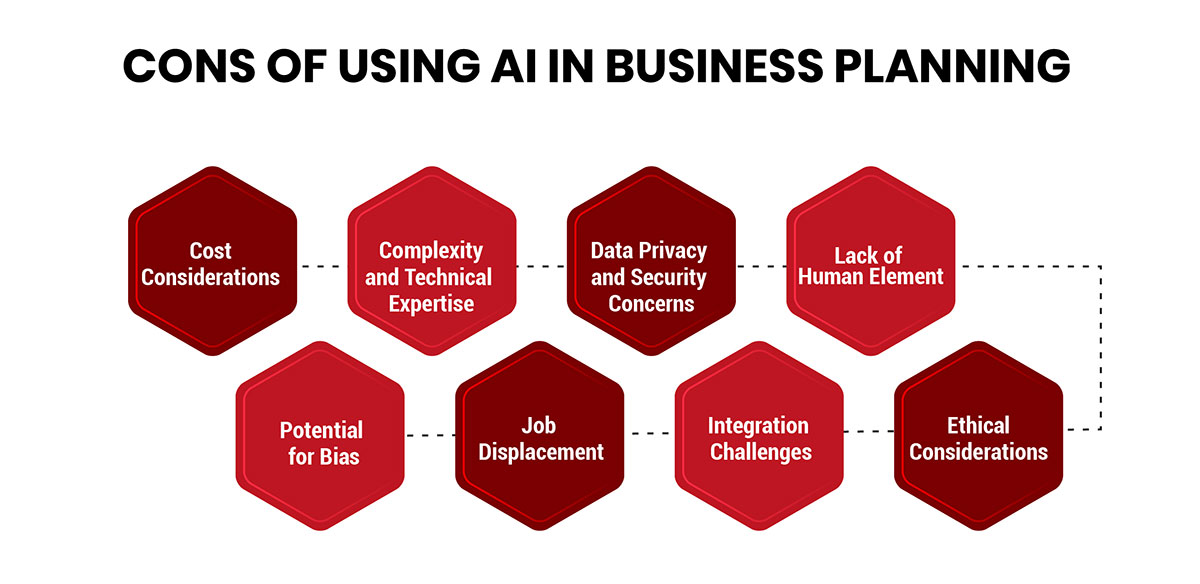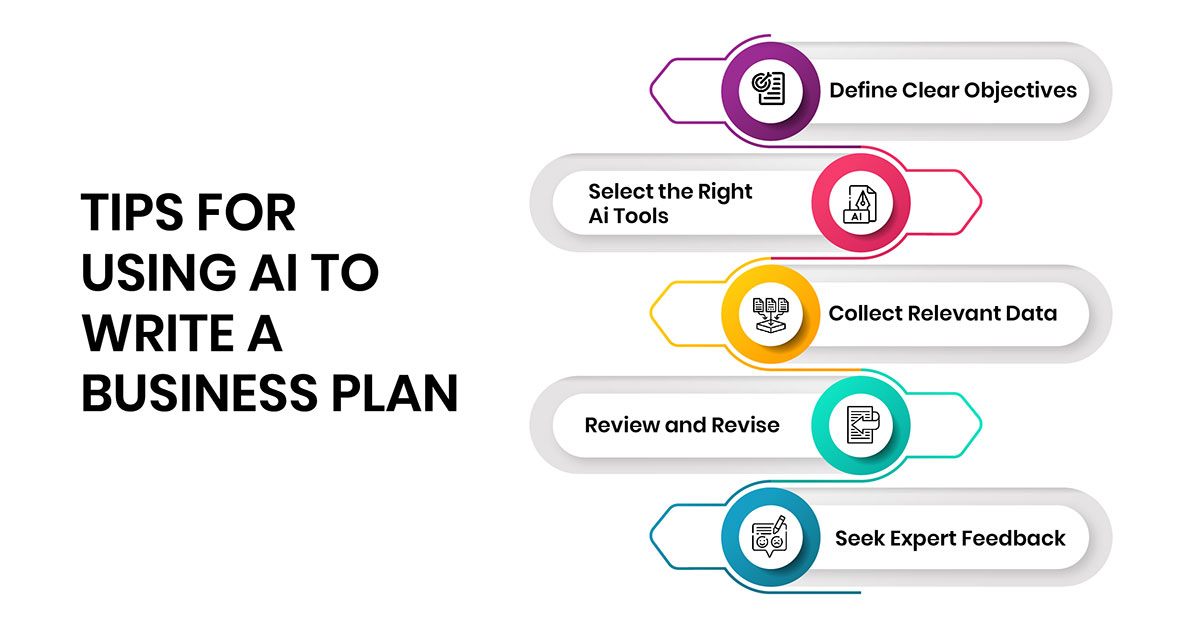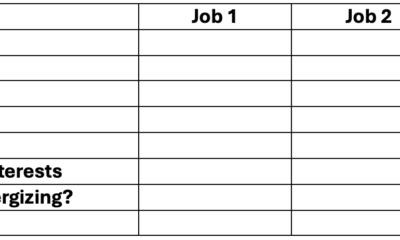Business Planning
Using AI in Business Planning: Pros and Cons

The Role of Artificial Intelligence in Business Planning
In today’s fast-paced world of strategic management, artificial intelligence (AI) has emerged as a vital tool for businesses worldwide. With a majority of companies now either using or exploring AI, its impact on business planning is profound. This technology is reshaping how businesses function, enabling them to make more informed decisions, increase efficiency, and maintain competitiveness.
Pros of Incorporating AI in Business Planning
Integrating AI into business planning has become a fundamental aspect of modern strategic management, with research indicating that over 77% of companies globally are actively using or exploring AI. The advantages of AI in business planning are numerous, driving its adoption across various industries. This transformative technology revolutionizes business operations, allowing for smarter decision-making, improved efficiency, and sustained competitiveness in today’s dynamic market.
- Enhanced Decision-making: AI enables businesses to make data-driven decisions quickly and accurately, providing valuable insights into market trends, customer behavior, and competitor strategies.
- Improved Efficiency: By automating tasks and streamlining processes, AI enhances operational efficiency and productivity, freeing up employees to focus on higher-value tasks.
- Better Customer Insights: AI helps businesses understand customer preferences and tailor products and services accordingly, leading to improved engagement and loyalty.
- Risk Management: AI aids in identifying and mitigating risks by analyzing data, reducing the likelihood of errors and ensuring business continuity.
- Competitive Advantage: Businesses leveraging AI gain a significant edge by analyzing market trends, competitor strategies, and consumer behavior to stay ahead and identify growth opportunities.
- Scalability: AI tools are scalable, making them suitable for businesses of all sizes to automate processes, improve efficiency, and support growth.
- Cost Savings: AI can help reduce costs by automating tasks, optimizing resources, and improving overall efficiency.
- Innovation: AI fosters innovation by enabling businesses to explore new ideas, develop innovative products, and drive long-term success.
Cons of Utilizing AI in Business Planning
While AI offers numerous benefits, it’s essential to recognize the challenges associated with its implementation in business planning.

- Cost Considerations: Integrating AI technology can be costly, especially for small and medium-sized enterprises, including expenses for software, hardware, training, and maintenance.
- Complexity and Technical Expertise: AI technology is complex and requires technical expertise for effective implementation, posing challenges for businesses lacking resources.
- Data Privacy and Security Concerns: AI’s reliance on data raises privacy and security issues, necessitating compliance with regulations and protection of sensitive information.
- Lack of Human Element: AI lacks the human touch and intuition, potentially leading to oversights in decision-making processes.
- Potential for Bias: AI algorithms may exhibit biases present in training data, resulting in unfair outcomes and undermining credibility.
- Job Displacement: Automation through AI could displace certain jobs, necessitating reskilling or upskilling initiatives for affected employees.
- Integration Challenges: Integrating AI into existing processes can be challenging and disruptive if not executed properly.
- Ethical Considerations: Ethical implications of AI usage, including decision-making and accountability, must be carefully considered to ensure responsible implementation.
Tips for Leveraging AI in Business Plan Writing
Follow these tips to effectively use AI in creating a comprehensive and well-informed business plan:

- Define Clear Objectives: Start by outlining your business goals to select suitable AI tools aligned with your strategy.
- Select the Right AI Tools: Choose user-friendly AI tools offering data analysis, forecasting, and benchmarking features.
- Collect Relevant Data: Gather pertinent data about your business, market, and competitors to enhance AI-generated insights.
- Review and Revise: Personally review and refine the AI-assisted business plan to ensure accuracy and alignment with your objectives.
- Seek Expert Feedback: Obtain feedback from industry experts to improve the quality and effectiveness of your business plan.
Conclusion
While AI presents significant benefits for business planning, addressing its challenges is crucial for effective implementation. By proactively mitigating these drawbacks, businesses can harness AI’s power to drive innovation, enhance decision-making, and achieve strategic success in today’s competitive landscape.
-

 Professional Development1 month ago
Professional Development1 month agoDrawing up your strategy
-

 Personal Growth2 months ago
Personal Growth2 months agoSucceeding as a ‘parentpreneur’: Top tips
-

 Videos2 months ago
Videos2 months agoGreat Leaders INSPIRE Others To Do Great Things
-

 Productivity1 month ago
Productivity1 month agoHow to Increase Remote Work Productivity
-

 Productivity2 months ago
Productivity2 months agoTips for Boosting Work Productivity
-

 Productivity1 month ago
Productivity1 month ago5 Ways to Increase Your Personal Assistant’s Productivity
-

 Leadership1 month ago
Leadership1 month agoHow to Tackle Big Challenges
-
Leadership1 month ago
Cutting Through the Clutter of Internal Communications




























